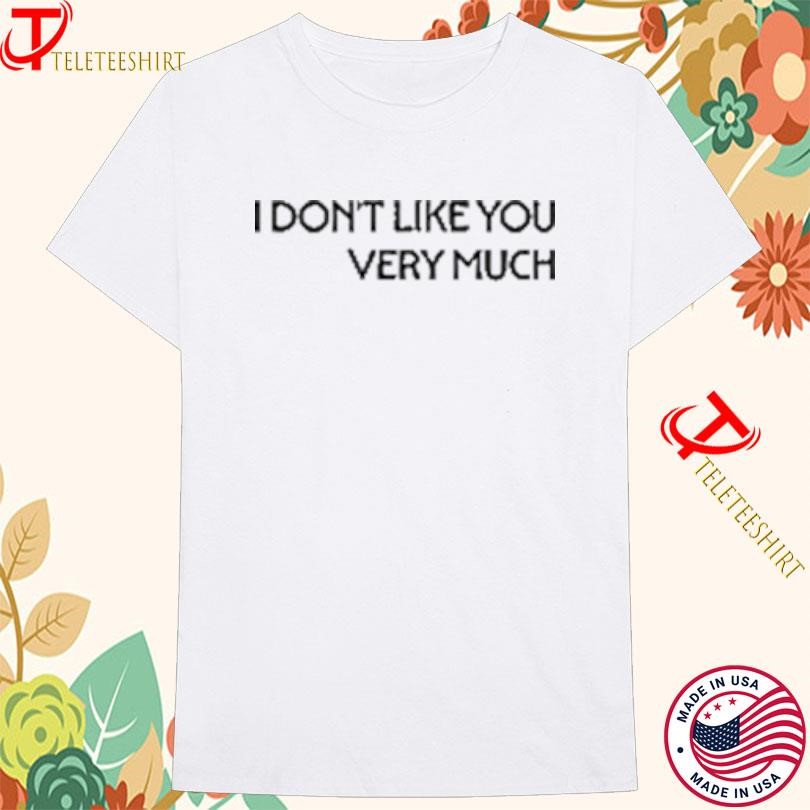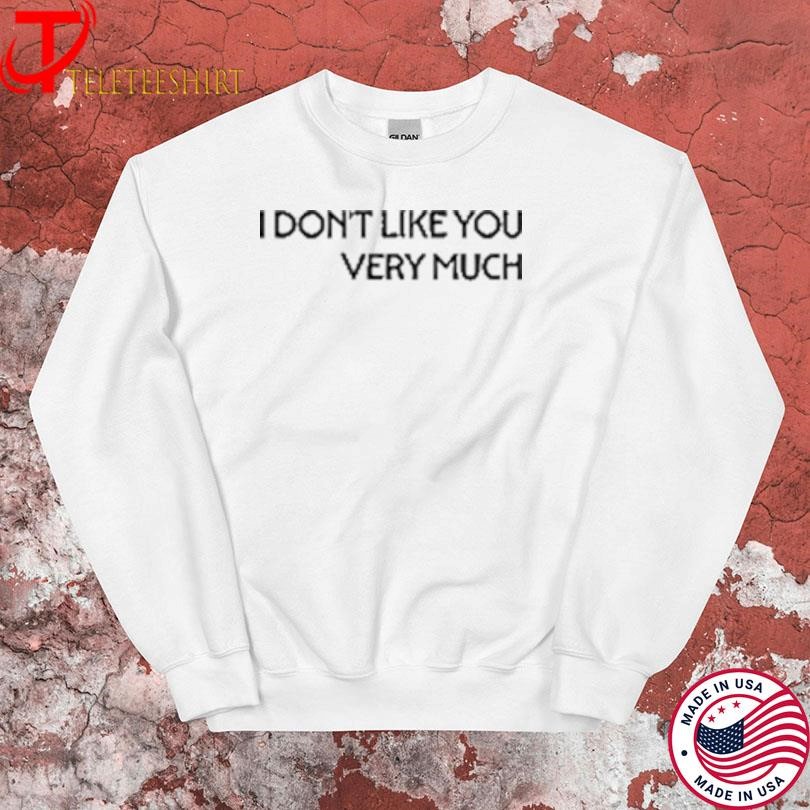The world of fandom often intersects with the realm of self-expression, and nowhere is this more evident than in the realm of band merchandise. Fans don’t just listen to the music; they wear their allegiances, declaring their loyalty through T-shirts, posters, and other collectibles. For some, the connection is a deep and unwavering devotion, a celebration of an artist’s work and persona. But what happens when that connection fractures? What if the artist, once idolized, elicits a reaction that’s less “swoon” and more… skeptical? This is the intriguing premise behind a particular line of merchandise: the Zayn I Don’t Like You Very Much T-Shirts.
Zayn I Don’t Like You Very Much T-Shirts: buy and enjoy this shirt
These T-shirts aren’t designed to celebrate Zayn Malik in the traditional sense. Instead, they tap into a more complex sentiment. They’re a playful, perhaps slightly ironic, acknowledgement of a shift in the fan-artist relationship. They represent a willingness to question, to critique, to express a nuanced opinion about a figure who, once upon a time, occupied a pedestal. This isn’t necessarily about hate; it’s about acknowledging a disconnect, a changed perspective. The simple statement conveys a level of honesty that’s refreshing. In a world saturated with gushing praise, these shirts offer a different kind of authenticity.

The appeal lies in the subtle rebellion. Wearing one of these shirts isn’t about tearing down Zayn Malik. It’s about acknowledging the complexities of being a fan, the possibility of disappointment, the right to evolve in your feelings towards an artist. Perhaps the fan feels let down by certain actions, disappointed by creative choices, or simply grown apart from the music. The shirt becomes a wearable shrug, a public display of a personal evolution. It’s a way of signaling: “I was there, I was a fan, and now…well, things are different.”

Moreover, the shirts offer a level of dark humor. The phrase “I Don’t Like You Very Much” is inherently funny, particularly when applied to someone so publicly known. It adds a layer of irony to the whole scenario. This type of humor is easily applicable in various social settings. The wearer can invite a chuckle, a knowing glance, or a conversation about the complicated nature of fandom. It’s a conversation starter, a way to connect with others who might share similar feelings.











Reviews
There are no reviews yet.